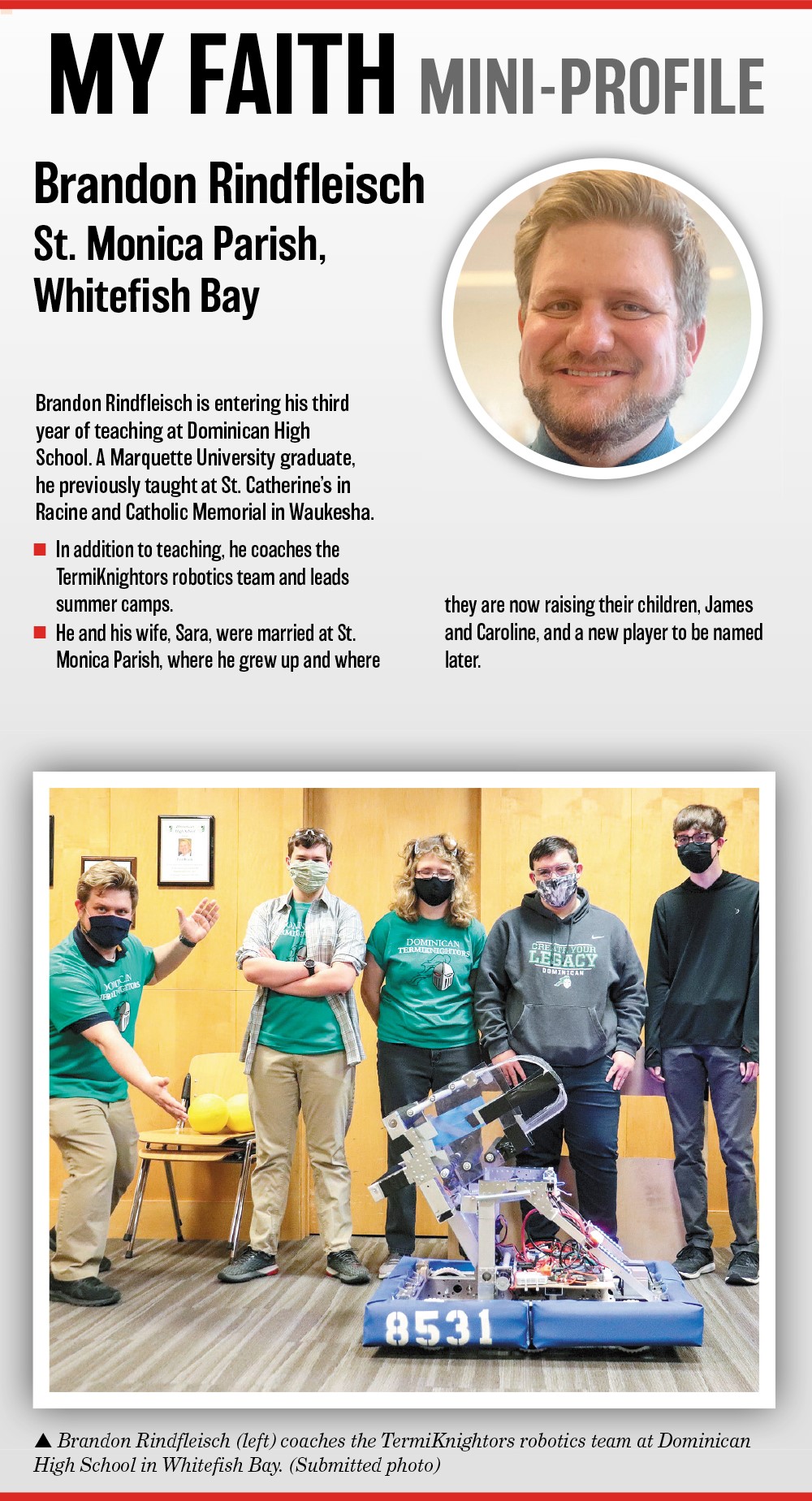The Body of Christ
Can you tell us a little bit about your journey from research to teaching?
It was a bit of a winding road. After leaving high school, and even after graduating college with a biochemistry and molecular biology major and a theology minor, teaching was not at all on my radar. After Marquette, I attended about a year and a half at the Medical College of Wisconsin, where I had four laboratory rotations. After settling on a lab after the first year, I wanted to make sure I was making the right choice morally, which led me to the 2008 Dignitas Personae document. I was on the phone with folks from the NCBC, getting excellent guidance from Fr. Tad Pacholczyk, among other Bioethicists there. I made the really tough choice to leave that lab because of the cell lines they were using. Of the other three labs, two of them didn’t have room for grad students, and the other one also would have required me to use cell lines of illicit origin. So, I managed to find a fifth lab rotation and joined that lab. Over the months that followed, I struggled due to a variety of reasons and started to look at what other plans God had for me.
So, what were those plans?
After leaving MCW, I started helping out and doing occasional subbing at St. Joan Antida. The following semester, I went back to Marquette to earn my master’s in education and teaching certification for broad field science, biology and chemistry. Overall, I realized that teaching could better utilize my skill set, which includes more than just scientific knowledge. Over my career so far, I’ve been able to use more of my talents, such as playing violin at school Masses and announcing for sports, and while teaching, my general enthusiasm has been viewed as an asset.
Many people seem to think that faith and science are diametrically opposed. You majored in science but minored in theology — do you believe faith and science conflict with one another?
They really shouldn’t at the end of the day. Faith and science need to go hand in hand. One thing that I’ve always loved about the Catholic Church is that we embrace the objective truths that science can reveal. I’m fortunate to work in a setting that embraces this idea as well. My colleague at Dominican, Izzy Utschig (a biochemistry and molecular biology and theology double major), even teaches a faith and science course that many juniors and seniors take.
What made you decide you wanted to teach science in Catholic schools?
Although I didn’t personally go to a Catholic high school, I knew that I could find a home in Catholic schools as a science teacher because I could feel free to bring up the intersections of what the Catholic Church teaches and how it relates to various subjects. For one example, we certainly teach evolution, but we take a little time to point out how Catholics are allowed to embrace the science of natural selection and where faith fits in.
What is it like to raise your kids in the parish you grew up in? What about St. Monica’s inspired you to come home when you started your family?
Both my wife and I grew up in Whitefish Bay, and St. Monica’s has been home to me for most of my life. I’ve played violin there on and off since high school and have helped out in various capacities, so in a sense, I’ve never really left it. The church is beautiful, and the priests are amazing. I really want to shout out to Fr. Paul and Fr. Jordan, who kept the church community going virtually at the onset of the pandemic.
You’ve also done some sports announcing and are a huge hometown fan. How cool is it for you that the Bucks have won?
Bucks in Six! Since being a fan growing up in the 90s with the purple and green, this year has really been a dream come true. I’m still trying to soak it in.
OK, I’m going to get you into some trouble here. Blue Dukes vs. Knights. Who are you rooting for?
It depends on which team’s clothes I’m wearing! Duke Pride! Go, Knights!

